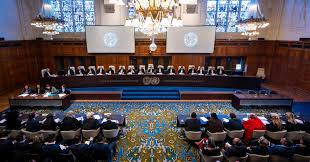
Mali has denounced Algeria for obstructing the International Court of Justice (ICJ) in a case concerning a drone shot down near their shared border.
The Malian government filed its application on September 16, 2025, seeking arbitration, but Algeria has refused to accept the Court’s jurisdiction, leaving the dispute in a procedural deadlock that Bamako calls “unfair.”
The conflict dates back to late March 2025, when a Malian surveillance drone was destroyed in the Tinzaouaten area along the Mali–Algeria border.
Mali claims the drone was operating over its own territory targeting armed groups in the northern region and that the shooting occurred without warning. Algeria asserts that the drone had crossed into its airspace, justifying its defensive action.
Relations between the two countries were already tense, following Mali’s challenge to the 2015 Algiers Agreement, a framework designed to stabilize northern Mali after years of conflict.
The drone incident has intensified existing mistrust and pushed Bamako to seek impartial international arbitration.
The ICJ confirmed on September 19, 2025, that “no steps will be taken in the proceedings until Algeria consents to the Court’s jurisdiction.” Under international law, the Court cannot examine disputes between states without prior agreement from all parties involved.
Bamako has criticized Algeria’s refusal as a “denial of justice” and is calling on the international community and regional organizations to mediate. Diplomatic pressure is being considered as a possible way to break the stalemate, offering a negotiated solution alongside legal channels.
Analysts say the deadlock highlights the limits of international law when one state rejects jurisdiction, and underscores how fragile sovereignty and authority remain in border regions of northern Mali. Until Algeria acknowledges the ICJ’s role, the dispute will remain unresolved, threatening regional cooperation and raising questions about the effectiveness of international arbitration in settling state conflicts.



